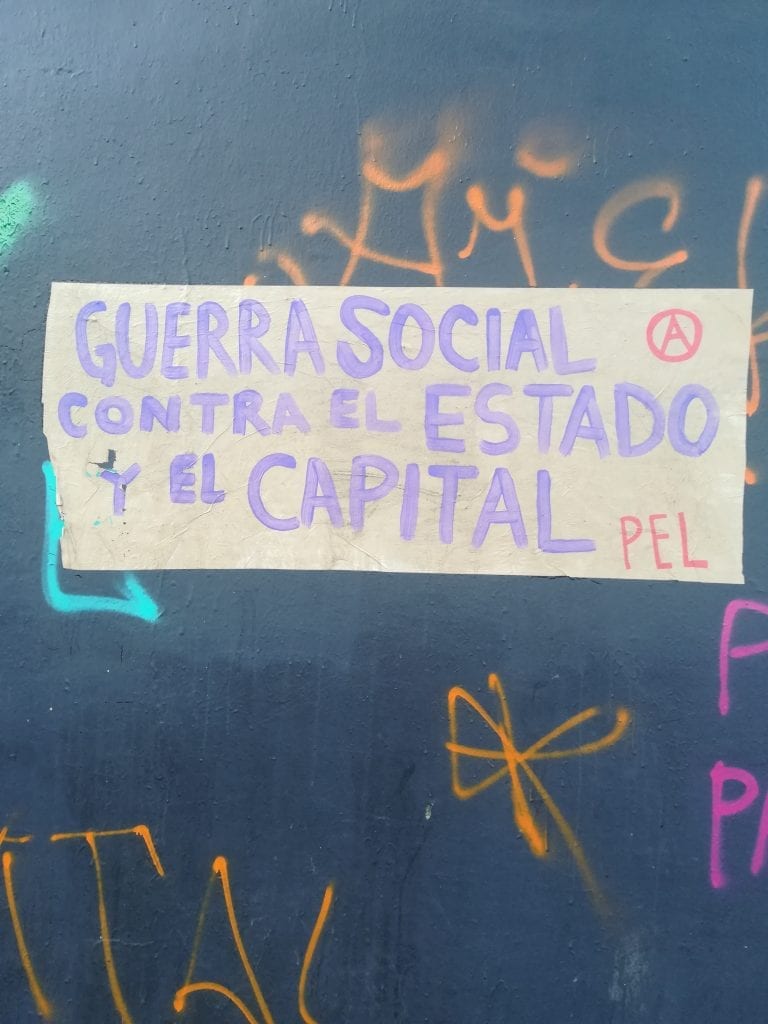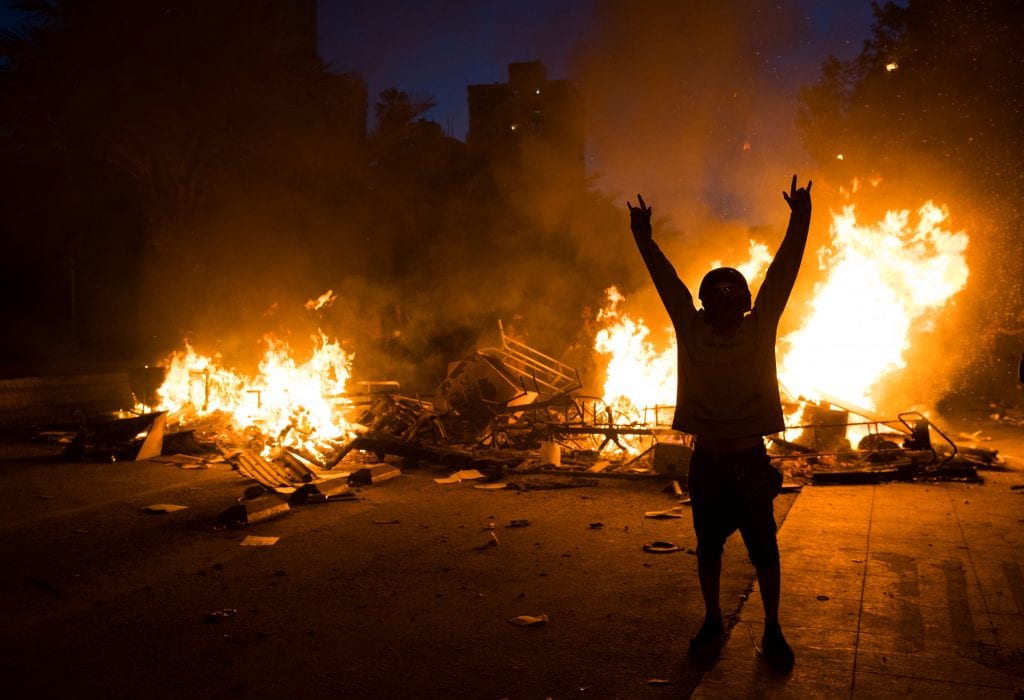
Spanish – I had not set foot in Chile for eight years. My memories of the first time I visited the southern country are rather neutral. At that time, despite the economic growth, I didn’t see the developed country that I would discover almost a decade later.
This time, it didn’t take me even ten minutes to realize what it means to be the head of the region. When I set foot at the Arturo Merino Benitez airport, I could feel the sense of planning, growth, and development in the country. The sight of diverse shops, restaurants, and international chains is a sign of economic development. Even the harmonic design of the lounge rooms shows the progress of the country.
On the way to downtown Santiago, I discovered first-class highways, flyovers, wide tunnels, constructions, and buildings that did not exist a few years ago. Alongside, there were closed shops, with wooden panels on their doors and windows to protect themselves from the onslaught of irrational protestors who have destroyed the capital.
Let’s put this story in context. It is worth remembering that Chile was the poorest of the countries conquered by the Spaniards. Through the power of markets, it made its way to become the wealthiest country among its neighbors, the country with the best economic development and highest life expectancy in Latin America. In fact, purchasing power increased six-fold. But the arrival of socialism ruined the system and thus, the economic stagnation of Chile began.
In October 2019, protestors in Chile destroyed the primary transport system. At least 100 metro stations were burnt, and the country was led into obscurantism. Churches, banks, supermarkets, shops, public buildings suffered the calamity of the radical groups that ask for “change of system,” and end to neoliberalism.” They have converted Santiago from a financial center to a realm of darkness.
Chileans argue that there is inequality in the country; salaries are not enough; the pension system is outdated; education is expensive. Are they right? Yes and no.
The pension system in the country certainly presents quite notable structural flaws, and access to academic enrolment is difficult for a large part of the population. There is no doubt that these aspects deserve to be analyzed and improved. But far from being a problem of the economic model, this is a shortcoming that different Chilean governments have weighed down for decades.
On the other hand, inequality has always been a talking-point of populist discourse. It is not new to see outraged masses just because there are rich and poor in a society. However, as already explained, the income capacity of the low-income Chilean grew far above that of the wealthiest. This means that the model was precisely lifting citizens out of poverty. Indeed, the latest report from the Economic Commission for Latin America and the Caribbean (ECLAC) indicates that Chile is the least impoverished country in the region.
However, a couple of years ago, these indices slowly began to crumble. This is precisely due to the measures enacted by Michelle Bachelet, who modified the system that turned the southern country into the powerhouse of South America. The socialist president increased state intervention and raised corporate taxes by more than 35%. Her reforms put Chile among the top three countries with the highest corporate tax in the world. This deterred investors and investments fell by 30% by 2016. She also enacted a labor reform that made hiring employees more expensive. Bachelet’s measures hindered growth, tax collection was much lower, the number of jobs decreased, and the country went into an economic downturn.
Bachelet tried to cover up her economic failures with high public spending through social programs, a typical feature of socialist governments. The result was an increase in the national debt and the gradual destruction of finances. The numbers are irrefutable: in the first quarter of Sebastian Piñera’s first term in office, Chile was growing at a rate of 5.9% per year; Bachelet’s policies brought this figure to 1.5% in 2016.
At present, Santiago is working at half capacity. I walked through the streets of downtown, very close to the Palace of the Currency, on a Tuesday, and it felt like 7:00 p.m. Sunday: very few people, hooded individuals, and shops closed with broken windows and graffiti invoking communism on their walls.

The feeling of walking through that anarchic Santiago moved me to the protests of 2014 in Venezuela. Especially to San Cristobal (my hometown), which had come to a complete standstill for three months to try to push Maduro’s departure from power. The enormous difference is that we were and continue to fight against the person responsible for starving and murdering Venezuelans; the Chileans battle against the system that led them to become the wealthiest country in the region.
What has happened in Chile should worry not only Chileans but all people across the world who defend liberty, progress, and believe in development for all, and not in the annihilation of freedoms and the rich through socialism. The southern country is living proof that the system of free markets and the defense of private entrepreneurship is the way to combat poverty. But the international left-wing wants to destroy it.
The communist propaganda in every corner of Santiago is remarkable and is reproduced in heaps. It is almost uncomfortable to walk through the streets because there is no way to avoid messages invoking the destruction of capitalism and calling for social anarchism. The worrying thing is that many Chileans are protesting for legitimate causes that are entirely different from the ones that a section of the protestors are capitalizing. A large part of the protestors are only asking for pension reform, but this has gotten transformed into messages of the end of neoliberalism and prohibition of policies suggested by the Chicago boys. The protestors want to see a socialist constitution and usher a new era of progressive destruction that other countries in the region have already experienced.
While current President Piñera is not to blame for the economic policies that stagnated the economy, he has been responsible for indirectly sustaining the protests. He has irrationally proved right those who have burned Santiago’s subway and destroyed part of the city, victimized the demonstrator, and criminalized the actions of the police who defend their constitutional government. At this rate, soon the social communists will pass over the entire system, or the police forces, fed up with being criminalized by the executive and beaten, burned and assaulted by the citizens, will end up taking a step to the side opening the way to much higher anarchy.

That’s right; Chile woke up. It awoke from the dream of growth and development so alien to the countries of Latin America, to come across a sad, pathetic, and regrettable reality: Latin American citizens are the main enemies of Latin America.
Chile awoke from a placid dream. Now the nightmare will come.
 Versión Español
Versión Español













